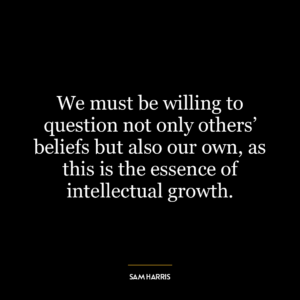The only true expression of faith is one that inspires people to love and serve others.
This quote suggests that genuine faith should not only be a personal spiritual journey but should also inspire acts of love and service towards others. It implies that faith is not just about beliefs and rituals but is more about how these beliefs and rituals influence our actions, particularly towards other people.
In essence, true faith should be a catalyst for positive change in the world, inspiring individuals to act with kindness, compassion, and selflessness. This is because the core of many religions and spiritual traditions is the principle of love and service to others. Therefore, the measure of one’s faith is not just in the depth of their beliefs but in the extent to which these beliefs motivate them to make the world a better place.
Applying this idea in today’s world or personal development could mean focusing less on dogmatic adherence to religious or spiritual practices and more on how these practices can inspire us to be better people. For instance, instead of simply attending religious services, one might also volunteer at a local charity or help out a neighbor in need.
In terms of personal development, this could mean cultivating qualities such as empathy, kindness, and compassion, which are often associated with spiritual growth. It could also mean striving to make a positive impact on the lives of others, whether through small acts of kindness or larger efforts to address social issues.
In a world where faith is often associated with division and conflict, this quote reminds us that the true purpose of faith should be to unite people in love and service. It encourages us to view faith not as a set of beliefs to be defended but as a force for positive change in the world.















